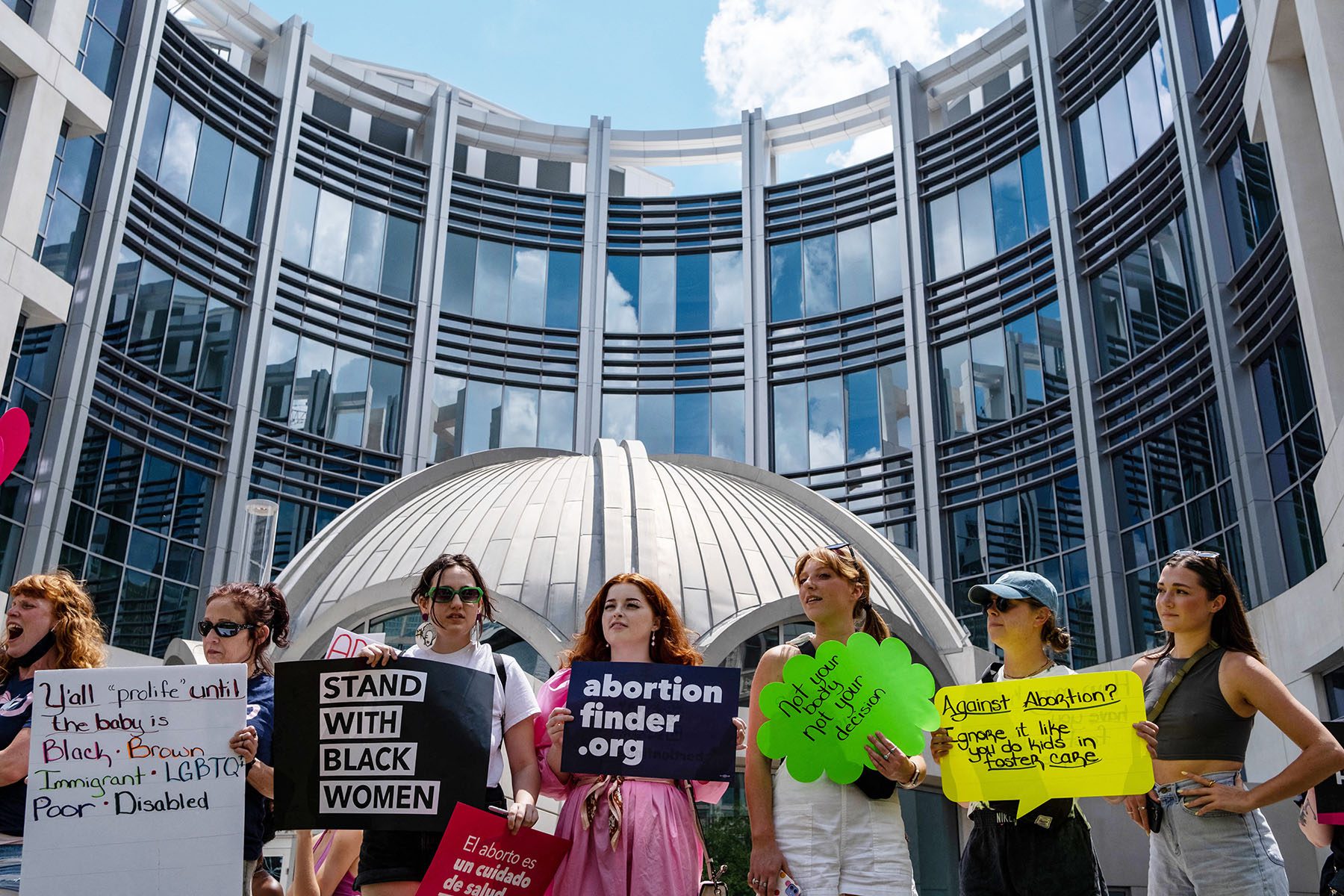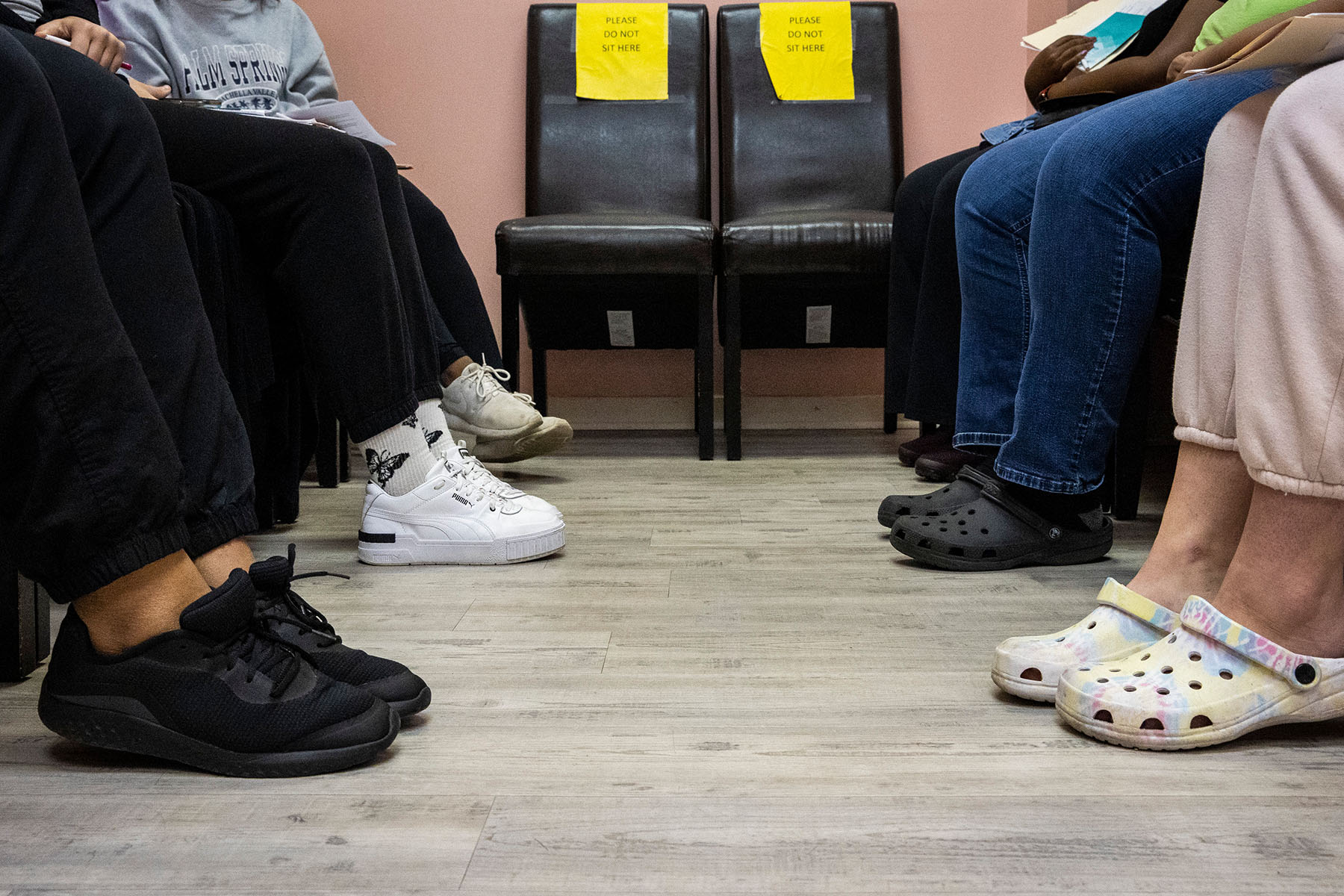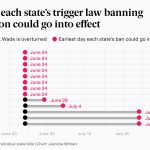Thirteen states passed laws meant to ban abortion after Roe v. Wade was overturned. Yet, two weeks after the Supreme Court’s decision, several of these so-called “trigger laws” are not in effect.
Legal chaos has erupted across the country as attorneys general, state governors, legal advocates and journalists attempt to interpret the mess of laws to determine the status of abortion access. Much of this confusion has stemmed from trigger laws, as there was little legal precedent for how this kind of legislation would go into effect. The 19th breaks down the differences among the trigger laws, why some are being challenged and what this means for abortion access.
What are trigger laws?
Trigger laws refer to abortion bans passed by state legislatures that would go into effect only if Roe v. Wade was overturned or some other circumstance made total bans legal. Thirteen states passed these trigger laws.
When do trigger laws go into effect?
While all of the laws hinge on abortion legislation powers being returned to states, there are different conditions that have to be met before the law becomes enforceable.
Kentucky, Louisiana and South Dakota’s bans went into effect immediately upon the Supreme Court ruling — as soon as the PDF of the opinion was published on the Supreme Court’s website.
The other 10 states require the formal step of certification before their bans could go into effect. Each state’s attorney general needs to review the Supreme Court’s decision with an eye for any potential barriers to enforcing an abortion ban, and then state in writing that there were no conflicts with current state or federal laws.
So are all of the trigger bans now in effect?
As of the late afternoon of July 5, every state except Wyoming received certification. In all states except Idaho, Tennessee, Texas and Wyoming, certification was the final step before abortion was outlawed.
Wyoming’s law goes into effect five days after certification, and the state has 30 days to certify.
Abortion bans in Idaho, Tennessee and Texas all go into effect 30 days after the Supreme Court issues a judgment, likely 25 days from the opinion date.
What’s the difference between an opinion, a ruling, an order and a judgment?
These terms are often used interchangeably, and only some have specific legal meaning, said Omar Noureldin, lecturer in law at the University of Southern California’s Gould School of Law.
A ruling is not a specific legal term, but rather a general description of a case’s outcome, Noureldin explained. Some trigger laws were tied to a ruling that overturned Roe v. Wade.
Opinions are documents issued by courts to outline the result of the case and expand on the legal reasoning behind their decision. “It may expand on an area of law or it may clarify an area of law, or, in the case of the Dobbs decision, overrule an area of law,” Noureldin said. An opinion is what the Supreme Court published on June 25.
An order follows an opinion and directs the next steps for all parties involved in the case. In Dobbs v. Jackson Women’s Health Organization, the Supreme Court ordered that a judgment of the Fifth Circuit Court be reversed and that the lower court take over additional administrative steps. This was written in the same document as the opinion.
Idaho, Tennessee and Texas’ trigger bans all go into effect 30 days after a judgment, which is the final say in a case — no more appeals, no more rehearings. Noureldin referenced the rules of the Supreme Court, which state any motion for a rehearing must be submitted within 25 days of the order announcement. After the window for rehearings closes, the decision is considered final and is entered as a judgment per the court order.
Since any motion for rehearing needs to be granted by a court majority, there is almost no chance of reconsideration in the Dobbs case. In that case, the date of judgment would be no earlier than July 20.

If states can create their own laws, why are some trigger laws being blocked by courts?
Overruling Roe v. Wade means abortion bans are now federally constitutional, but new laws still need to comply with each state’s own legal code. In some way, versions of the seminal court case are now playing out across the country.
Trigger laws in Kentucky, Louisiana and Utah have been temporarily blocked. The injunctions in Kentucky and Louisiana prevent the laws from being enforced until full cases are heard by local courts.
A Louisiana judge will hear arguments starting July 8; the suit claims the law is too vague, stymying proper interpretation. No date has been set for Kentucky’s suit.
Utah’s law was temporarily blocked for 14 days after Planned Parenthood of Utah argued that the sudden loss of abortion rights would negatively impact the health of state residents. The suit also asserted that the abortion ban violated rights guaranteed under the state constitution. Currently, Utah’s ban is set to be reinstated on July 11.
What does all this mean for people trying to access abortion?
The legal status of abortion in some states with trigger laws has been changing almost hourly, forcing clinics to cancel appointments and redirect care. On the date of the Supreme Court ruling, abortion providers had to tell patients in waiting rooms that they could no longer be treated.
Some clinics, like in West Virginia and Wisconsin, stopped providing abortions as a precaution against unclear pre-Roe bans. In the immediate aftermath of the ruling, Arizona’s clinics stopped providing abortions as lawmakers fought over contradictory laws.
It’s unclear how some trigger laws will be enforced. In an abundance of caution, Planned Parenthood of Montana has stopped providing medication abortions to patients from states banning abortion.
Temporary holds have provided some relief, as clinics in Utah and Louisiana have confirmed to The 19th that they have resumed providing abortions. But the future is uncertain: some clinics are staying open to provide other forms of reproductive care, and others are relocating to states where abortion is protected.








